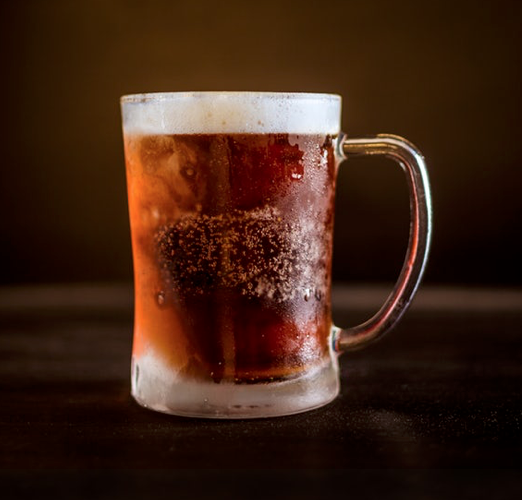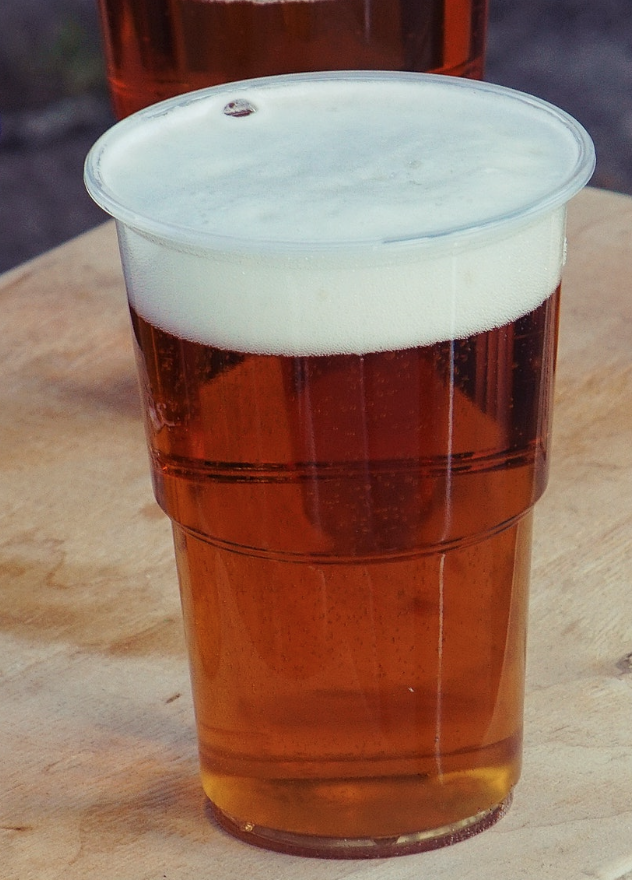by Nkem Iregbulem
Beer, one of the oldest beverages ever made by man, is a popular alcoholic beverage enjoyed by many around the world. The chemical analysis of old clay tablets revealed that the production of beer dates back to at least 3500 BC in modern day Iran. Beer was discovered — some believe unintentionally — when grains from bread were left unattended and started to ferment.
Beer grew popular in different areas for different reasons. In some places, beer became popular because it was often cleaner than the water that they had available to them in nearby rivers and canals. In other locations, beer became popular because of its taste and its effects on the drinker. Over time, the ingredients used to make the drink changed. Initially, Egyptians used barley for their beer, but eventually in the Middle Ages, Christian monks and other artisans started to replace barley with hops. Beer has now evolved such that we wouldn’t classify the early Europeans’ version of the drink as the beer we know today.
Are you tired of beer’s bad reputation when it comes to nutrition? Do you enjoy winding down with a beer or two every now and then? You’ll be both surprised and glad to hear that beer, consumed in moderation, might actually be beneficial to your health in a couple of ways.
A study, led by Shue Huang from Penn State and conducted in China, found that the moderate consumption of beer was associated with a slower decline in HDL levels. HDL, or high-density lipoprotein, is thought to be the good kind of cholesterol. The study defined moderate consumption as a 0.5 to 1 twelve-ounce serving of beer for women and 1 to 2 twelve-ounce servings of beer for men. The study tracked close to 80,000 subjects over a six-year period to obtain its results. Even though HDL levels generally decreased over time for all participants, they found that this decline was slowest among moderate drinkers. Since HDL levels act as an indicator for the risk of cardiovascular disease, the results suggested to researchers that drinking beer in moderation may lower one’s risk of cardiovascular diseases.
Two other studies have suggested that beer may even improve bone health. The first study, published in the Journal of the American Medical Association, found that those who drank beer in moderation were 38% less likely to have osteoporosis — a very common bone disease — than those who did not consume beer. The second study, published in Osteoporosis International, saw similarly protective effects. Its results indicated that people who consumed beer in moderation faced a 20% lower risk of hip fractures than non-drinkers. Since dietary silicon is both found in beer and tied to bone growth and development, researchers suspected that this ingredient may play a role in beer’s potential bone health benefits.
Other studies have found that beer may also help prevent diabetes, cancer, and obesity and even boost creativity.
If you’re looking for more than just health benefits from beer, you could invest your money in companies involved in the beer industry. Your options for beer-related companies include: Anheuser-Busch InBev (BUD), Craft Brew Alliance, Inc. (BREW), Heineken NV (HEINY), Molson Coors Brewing (TAP), and Granite City Food & Brewery (GCFB). Some of these names may be more familiar to you than others. The BUD and TAP stocks are both traded on the New York Stock Exchange, and the BREW stock is traded on the NASDAQ exchange. Meanwhile, the HEINY and GCFB stocks are both traded over-the-counter.
Anheuser-Busch InBev is a brewing company involved in the production, distribution, and sale of beer, alcoholic beverages, and soft drinks. The company is headquartered in Belgium and was founded in 1366. Popular brands under the company include Budweiser, Corona, and Becks. As of late, the company has around 500 beer brands under its name. It splits these brands into three main categories: International Brands, Global Brands, and Local Champions. Its brand portfolio also includes some popular soft-drink brands. As the world’s largest brewery, the company boasts a very large market cap of $156.81 billion and pays a generous dividend yield of 4.43%. Given its price-to-sales ratio of 3.41, the stock is considered somewhat overpriced. It trades at 25.94 times trailing earnings and at 19.19 times forward earnings. The stock also has a price-to-book ratio of 2.17. The company faces a negative 3-year revenue growth rate of -2.92%, and its revenue has been decreasing each fiscal year since 2016.
Founded in 1981, Craft Brew Alliance, Inc. is a beer brewing company based in Portland, Oregon and involved in the brewing and selling of craft beers and ciders in the United States and in various other countries. Its brand portfolio includes brands such as Kona Brewing Company, Widmer Brothers Brewing, and Redhook Ale Brewery. Craft Brew Alliance has two operating segments: Beer Related operations and Brewpubs operations. However, most of the company’s revenue comes from brewing and its sales of craft beers and ciders domestically and internationally as part of the company’s Beer Relation operations segment. It sells its products through liquor stores, restaurants, bars, supermarkets, and convenience stores. The company has a market cap of $382.82 million but does not pay a dividend yield. Its stock has a normal price-to-sales ratio of 1.83 and a price-to-book ratio of 2.92. It trades at 33.56 times trailing earnings and at 33.67 times forward earnings. The company’s revenue has been increasing each fiscal year since 2016, contributing to its 3-year revenue growth rate of 1.22%.
Many people have heard of Heineken NV, a company based in Netherlands and founded in 1864. It brews and sells beer and cider around the world. Heineken is the largest cider producer in the world, and after only Anheuser-Busch InBev, it is the second largest brewer in the world. Its operating segments include Americas, Middle East & Eastern Europe, Africa, Asia Pacific, and Europe. Well-known brands under the company include Heineken, Amstel, Desperados, and Sol. Within its brand portfolio, you can find Belgian, craft, and even non-alcoholic beer. Its products can be found at retailers, bars, and restaurants. As Western Europe’s largest beer producer, the company boasts a very large market cap of $58.34 billion and pays a dividend yield of 1.56%. With a price-to-sales ratio of 2.30, the stock is slightly overpriced. It trades at 25.89 times trailing earnings and at 21.23 times forward earnings. It also has a price-to-book ratio of 3.77. Heineken NV enjoys a 3-year revenue growth rate of 4.36% as its revenue has been increasing each fiscal year since 2008.
Molson Coors Brewing is a multinational company that manufactures and sells beers globally. The company is based in Colorado and was founded in 1786. You may have heard of a few of the brands in its portfolio: Coors Light, Miller Lite, Molson Canadian, and Carling. Most of Molson Coors Brewing’s sales and operating profits come from the company’s business in the United States, followed by Canada and then Europe. As the second largest brewer by volume in the United States, the company has a market cap of $14.3 billion and pays a dividend yield of 2.48% — up from last year. The company has a price-to-sales ratio of 1.3 and a low price-to-book ratio of 1.06. It trades at 11.96 times trailing earnings and at 13.23 times forward earnings. Molson Coors Brewing enjoys a great 3-year revenue growth rate of 38.45% and its revenue has been increasing each fiscal year since 2015.
Based in Minnesota and founded in 1997, Granite City Food & Brewery is an upscale casual restaurant chain in the United States that produces its signature brews on-site at its restaurants. It operates two dining concepts called Granite City Food & Brewery and Cadillac Ranch All American Bar & Grill. At the former, you will find various menu items as well as handcrafted beer. At the latter, you will find authentic cuisines ranging from pasta to tasty meatloaf. Granite City Food & Brewery has a tiny market cap of $4.31 million, so its stock is very speculative. It also has an excellent, low price-to-sales ratio of 0.03. The company has a 3-year revenue growth rate of 3.86% and an even better 5-year revenue growth rate of 10.02%. Its revenue increased each fiscal year between 2009 and 2015, before dipping slightly in 2016.
Hopefully your beer stocks will perform well and you can celebrate with a couple of beers.
Disclosure: Author didn’t own any of the above at the time the article was written.


